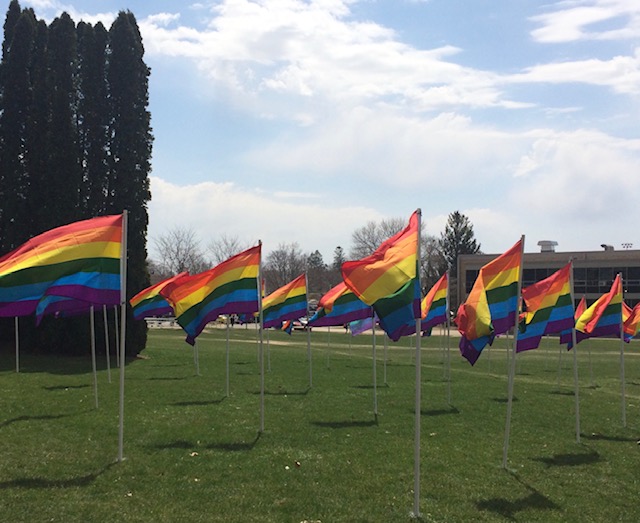Reflections on Day of Silence in a pandemic
April 24 marked the annual Day of Silence, an event held in schools and universities nationwide to honor LGBTQ+ people who have been silenced due to the violence too often visited upon members of our community. According to GLSEN (the Gay and Lesbian Student Education Network), which formally sponsors and promotes Day of Silence, 2020 marks the 25th anniversary of this event. It is, therefore, older than the average college student. As data compiled by the Southern Poverty Law Center and other, similar organizations shows, anti-LGBTQ+ hate crimes are on the rise and have seen a steep increase since the 2016 election. Trans people, particularly trans women of color, tend to face the most egregious violence, though the LGBTQ+ community generally lives under a perpetual elevated threat.
UW-Platteville has done little to participate in Day of Silence. The Doyle Center has offered some programming. Members of student governance groups have sponsored displays of rainbow flags in the quad beside the MPSC for the past two years, though with limited publicity to associate the display with Day of Silence.
For many years, so-called Christian groups have sponsored an equally so-called “Day of Truth” to follow Day of Silence. The idea is to speak some vague and misguided version of “truth” that LGBTQ+ “lifestyles” are inherently bad or immoral or something along those lines. Mercifully, if our campus has not done much to honor Day of Silence, we have also avoided the hate-mongering of these useless “truthers” (and I refuse to believe they are genuinely Christian; rather, they are just another of the banal manifestations of the daily fascisms so common in contemporary American life).
Silence may seem like a strange way to get someone’s attention. Why not shout in the street or hold rallies with big signs? Even non-violent resistance, such as the forms of peaceful protests in the Civil Rights movement, usually benefits from visibility, which practicing silence rarely helps achieve. More apropos, early AIDS activists adopted the motto Silence = Death to advocate for visibility in the disinterested days of the Reagan era, when funding the Centers for Disease Control to combat a plague was also, apparently, politically inconvenient. Those activists included with that motto the image of the Pink Triangle, the symbol sewn onto the uniforms of homosexuals sent to concentration camps and, eventually, the gas chambers of Nazi Germany.
However, if Silence = Death, then death is silence. As we honor a moment of silence when any tragedy occurs, we adopt silence in the LGBTQ+ community to extend that honor to those whom we have lost. Too often, violence—including fatal violence—against the LGBTQ+ community is dismissed or down-played, othered into something that happened just once and elsewhere, the victims usually listed only among the “also died.”
There is grief enough in these strange days through which we are living. Pausing to remind our campus community of Day of Silence may seem excessive when we are faced with a new plague that does not discriminate in its selection of victims (something the LGBTQ+ community has been saying about a different plague since 1981).
Still, through this disruption to our lives, in the anxieties over the future, in the concern about a substantial economic downturn, or even through existential questions about what institutions once held so sacred will look like when the sun comes up at some point on a day we don’t yet have marked on our calendars—we gain in this collective experience at least this one thing: a pause. Here, in our homes and sheltering with our families—whether biological or otherwise, we make families of those we love—as we consider the values we hold dear and the simple things we wish to maintain in our lives, we are all in our communal moment of silence. It is a good time for reflection, for valediction, and for us to name the things we want to carry on to the other side of this dark night.
When we return to the noise and routine of lives uninterrupted, maybe we can all hold onto this lesson: no one should ever have to live in fear.




